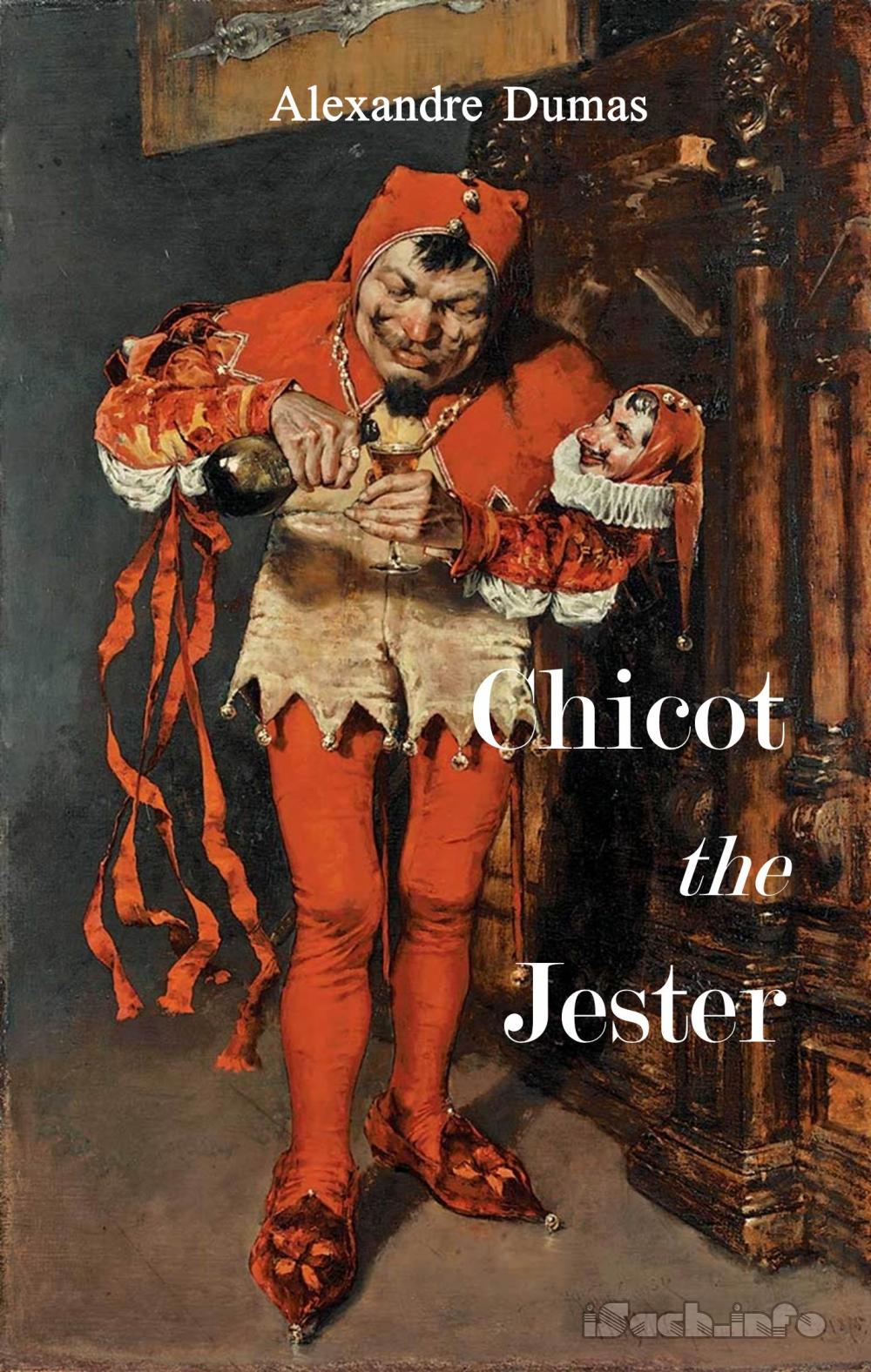Chapter 9: How The Angel Made A Mistake And Spoke To Chicot, Thinking It Was The King
T
he king and Chicot remained thus for some time. All at once the king jumped up in his bed. Chicot woke at the noise."What is it?" asked he in a low voice.
"The breath on my face."
As he spoke, one of the wax lights went out, then the other, and the rest followed. Then the lamp also went out, and the room was lighted only by the rays of the moon. At the same moment they heard a hollow voice, saying, apparently from the end of the room,—
"Hardened sinner, art thou there?"
"Yes," said Henri, with chattering teeth.
"Oh!" thought Chicot, "that is a very hoarse voice to come from heaven; nevertheless, it is dreadful."
"Do you hear?" asked the voice.
"Yes, and I am bowed down to the earth."
"Do you believe you obeyed me by all the exterior mummeries which you performed yesterday, without your heart being touched?"
"Very well said," thought Chicot. He approached the king softly.
"Do you believe now?" asked the king, with clasped hands.
"Wait."
"What for?"
"Hush! leave your bed quietly, and let me get in."
"Why?"
"That the anger of the Lord may fall first on me."
"Do you think He will spare me for that?"
"Let us try," and he pushed the king gently out and got into his place.
"Now, go to my chair, and leave all to me."
Henri obeyed; he began to understand.
"You do not reply," said the voice; "you are hardened in sin."
"Oh! pardon! pardon!" cried Chicot, imitating the king's voice. Then he whispered to Henri, "It is droll that the angel does not know me."
"What can it mean?"
"Wait."
"Wretch!" said the voice.
"Yes, I confess," said Chicot; "I am a hardened sinner, a dreadful sinner."
"Then acknowledge your crimes, and repent."
"I acknowledge to have been a great traitor to my cousin Condé, whose wife I seduced."
"Oh! hush," said the king, "that is so long ago."
"I acknowledge," continued Chicot, "to have been a great rogue to the Poles, who chose me for king, and whom I abandoned one night, carrying away the crown jewels. I repent of this."
"Ah!" whispered Henri again: "that is all forgotten."
"Hush! let me speak."
"Go on," said the voice.
"I acknowledge having stolen the crown from my brother D'Alençon, to whom it belonged of right, as I had formerly renounced it on accepting the crown of Poland."
"Knave!" said the king.
"Go on," said the voice.
"I acknowledge having joined my mother, to chase from France my brother-in-law, the King of Navarre, after having destroyed all his friends."
"Ah!" whispered the king, angrily.
"Sire, do not let us offend God, by trying to hide what He knows as well as we do."
"Leave politics," said the voice.
"Ah!" cried Chicot, with a doleful voice, "is it my private life I am to speak of?"
"Yes."
"I acknowledge, then, that I am effeminate, idle, and hypocritical."
"It is true."
"I have ill-treated my wife—such a worthy woman."
"One ought to love one's wife as one's self, and prefer her to all things," said the voice, angrily.
"Ah!" cried Chicot, "then I have sinned deeply."
"And you have made others sin by your example."
"It is true."
"Especially that poor St. Luc; and if you do not send him home to-morrow to his wife, there will be no pardon for you."
"Ah!" said Chicot to the king, "the voice seems to be friendly to the house of Cossé."
"And you must make him a duke, to recompense him for his forced stay."
"Peste!" said Chicot; "the angel is much interested for M. de St. Luc."
"Oh!" cried the king, without listening, "this voice from on high will kill me."
"Voice from the side, you mean," said Chicot.
"How! a voice from the side?"
"Yes; can you not hear that the voice comes from that wall, Henri?—the angel lodges in the Louvre."
"Blasphemer!"
"Why, it is honorable for you; but you do not seem to recognize it. Go and visit him; he is only separated from you by that partition."
A ray of the moon falling on Chicot's face, showed it to the king so laughing and amused, that he said, "What! you dare to laugh?"
"Yes, and so will you in a minute. Be reasonable, and do as I tell you. Go and see if the angel be not in the next room."
"But if he speak again?"
"Well, I am here to answer. He is vastly credulous. For the last quarter of an hour I have been talking, and he has not recognized me. It is not clever!"
Henri frowned. "I begin to believe you are right, Chicot," said he.
"Go, then."
Henri opened softly the door which led into the corridor. He had scarcely entered it, when he heard the voice redoubling its reproaches, and Chicot replying.
"Yes," said the voice, "you are as inconstant as a woman, as soft as a Sybarite, as irreligious as a heathen."
"Oh!" whined Chicot, "is it my fault if I have such a soft skin—such white hands—such a changeable mind? But from to-day I will alter—I will wear coarse linen——"
However, as Henri advanced, he found that Chicot's voice grew fainter, and the other louder, and that it seemed to come from St. Luc's room, in which he could see a light. He stooped down and peeped through the keyhole, and immediately grew pale with anger.
"Par la mordieu!" murmured he, "is it possible that they have dared to play such a trick?"
This is what he saw through the keyhole. St. Luc, in a dressing-gown, was roaring through a tube the words which he had found so dreadful, and beside him, leaning on his shoulder, was a lady in white, who every now and then took the tube from him, and called through something herself, while stifled bursts of laughter accompanied each sentence of Chicot's, who continued to answer in a doleful tone.
"Jeanne de Cossé in St. Luc's room! A hole in the wall! such a trick on me! Oh! they shall pay dearly for it!". And with a vigorous kick he burst open the door.
Jeanne rushed behind the curtains to hide herself, while St. Luc, his face full of terror, fell on his knees before the king, who was pale with rage.
"Ah!" cried Chicot, from the bed, "Ah! mercy!—Holy Virgin! I am dying!"
Henri, seizing, in a transport of rage, the trumpet from the hands of St. Luc, raised it as if to strike. But St. Luc jumped up and cried—
"Sire, I am a gentleman; you have no right to strike me!"
Henri dashed the trumpet violently on the ground. Some one picked it up; it was Chicot, who, hearing the noise, judged that his presence was necessary as a mediator. He ran to the curtain, and, drawing out poor Jeanne, all trembling—
"Oh!" said he, "Adam and Eve after the Fall. You send them away, Henri, do you not?"
"Yes."
"Then I will be the exterminating angel."
And throwing himself between, the king and St. Luc, and waving the trumpet over the heads of the guilty couple, said—
"This is my Paradise, which you have lost by your disobedience; I forbid you to return to it."
Then he whispered to St. Luc, who had his arm round his wife—
"If you have a good horse, kill it, but be twenty leagues from here before to-morrow."



 ePub
ePub A4
A4